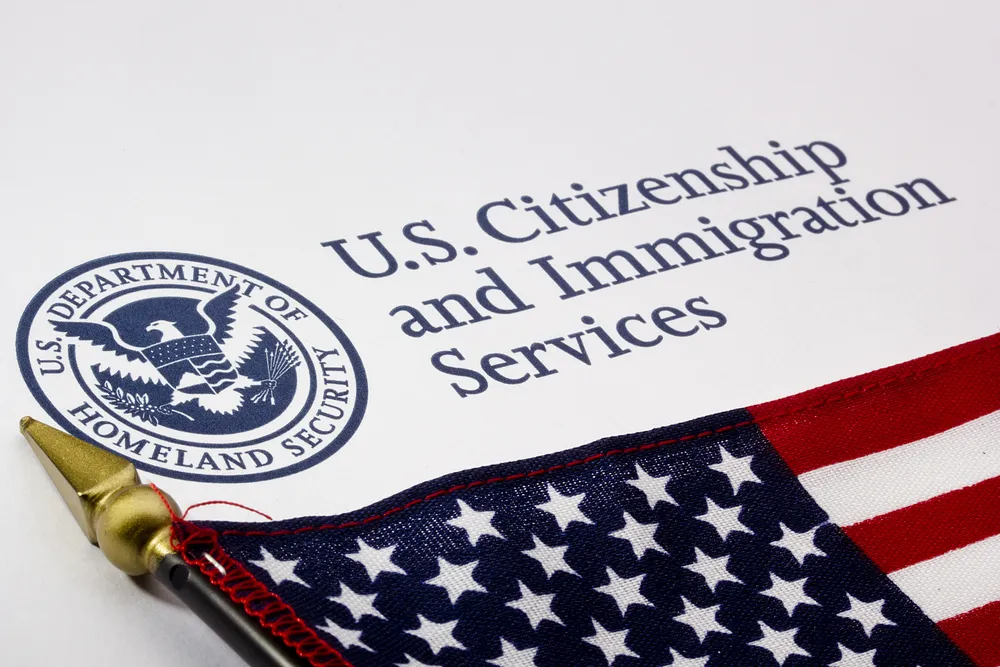
US immigration law operates under the century-plus old (and re-affirmed under the Obama administration) doctrine of consular non-reviewability. Consular non-reviewability specifically applies to decisions made by consular officers representing the United States in other countries, who are employees of the United States Department of State. It does not apply to decisions made by United States Citizenship and Immigration Services.
The general gist of this doctrine is that immigration decisions made in foreign U.S. Consular offices are not reviewable by the court, and it comes with these two exceptions:
- The Mandel test, namely, that the consulate did not provide a "facially legitimate and bona fide" reason for the rejection, and it might infringe on the constitutional rights of United States citizens.
- In cases where a consular officer rejects the application based on an underlying statute or regulation, it may sometimes be appealed on these two grounds:
(a) Claims that the underlying statute or regulation being applied is unconstitutional.
(b) Claims that the consular officer made a procedural error in applying the statute.
With that background:
In 2017, a consular officer twice denied the visa application of Zahoor Ahmed, a citizen of Yemen, on the ground that she had sought to smuggle two children into the United States. Ahmed sued, and when the case came before the District Court, the court, applying the doctrine of consular non-reviewability, found its hands tied and dismissed the case.
In 2018, the District Court's decision was appealed, and the case landed in the 7th Circuit Court of Appeals. The court of appeals concurred with the district court and let the lower court's decision stand.
By way of note, the decision was a 2-1 split, with two justices having been nominated to the court by President Reagan, and the third having been nominated to the court by President Trump. The dissenting opinion was by Justice Ripple, elevated to the court by President Reagan.
In the 7th Circuit opinion affirming the lower court's decision, the Justice Barrett writing for the majority reasons:
"Congress has delegated the power to determine who may enter the country to the Executive Branch, and courts generally have no authority to second-guess the Executive’s decisions. To that end, the doctrine of consular nonreviewability “bars judicial review of visa decisions made by consular officials" The record before us does not include additional detail on the rationale behind the consular officer’s decision. It does not show, for example, whether the officer concluded that Ahmed and Yafai did not have children named Yaqub and Khaled; whether the officer thought that Ahmed had tried to smuggle children into the United States using the names of children who were hers but who were now deceased; or whether the officer believed that Ahmed had children named Yaqub and Khaled whom she had tried to smuggle into the United States while they were still alive. If Ahmed tried to smuggle her own children into the United States, she could seek a waiver of the statutory bar. She has apparently not done so. Yet even in that circumstance, a court may not disturb the consular officer’s decision if the reason given is “facially legitimate and bona fide.” (as outlined in Mandel)
What follows then is a long discussion of whether the high-bar presented by the "Mandel test" was met (with the obvious conclusion that it was not)
In the dissent, Justice Ripple concedes:
"To this day, we have no idea what the basis was, or if there was any basis, for the Government’s assertion that Ms. Ahmed attempted to smuggle two children into the United States. On this record, we cannot tell whether the adjudicating officer undertook a careful examination or whether, without any examination, he simply issued a denial based solely on a generalized, stereotypical assumption of what, in his view, happens in that country."
In short... even the dissenting justice can make no determination of whether the consular official in question violated the standards presented by the Mandel test.
There are other considerations in this case of course, but the considerations outlined above are, I think, at the core of the case.
A friend asked me to examine this case and tell what I thought. I think his real (though unasked) question was this: whether a Justice (or in this case, two) could look at the facts of the case and through a conscientious reading of the law with as little bias as a human can manage, come to the conclusion that this case is controlled by the long-standing doctrine of consular non-reviewability.
It is my opinion that an unbiased jurist attempting to faithfully apply the law could (and likely would) come to the conclusion reached this 3-judge panel of the 7th Circuit Court of Appeals.